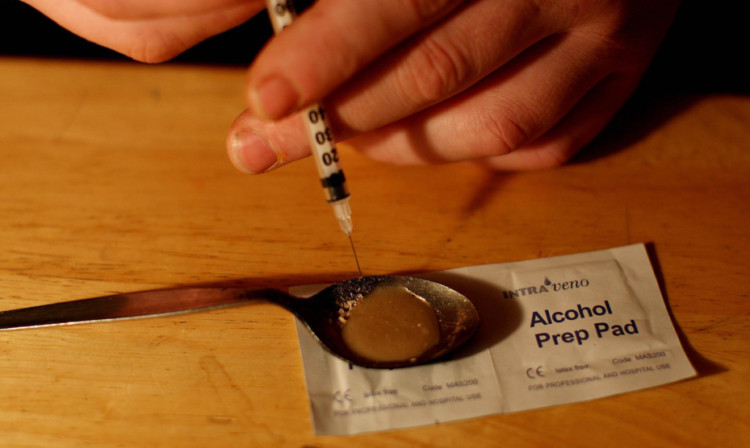Drug treatment must focus more on the trauma addicts have faced in their lives, according to new research.
Services need to tackle the underlying issues fuelling the problem, a Scottish Drugs Forum (SDF) study says.
It calls for a review of trauma services to ensure they are able to intervene as early as possible to help troubled people.
High quality, effective psychological therapies should also be more widely and easily available, researchers argue.
The study focused on the lives of 55 former injecting drug users, the majority of whom were aged between 30 and 50 and came from, or ended up in, relatively deprived areas.
Injecting drugs was primarily a “dysfunctional coping response” for the participants, used to block out trauma or difficulties as an adult or child, the study found.
None of those taking part had a problem-free childhood, with traumas experienced including sexual, physical or emotional abuse by relatives.
More than a third of participants grew up with at least one parent with an alcohol or drug problem, often with associated domestic violence.
All went on to experience traumatic events in adulthood related to drug use and dealing, including serious health problems, overdose and the deaths of family or friends by overdose or murder.
Individuals, families and society are paying a huge price for the failure to address these traumas effectively, the researchers concluded.
David Liddell, director of the Scottish Drugs Forum, said he hoped the findings would help challenge the perception of a drug problem as a lifestyle choice or something self-inflicted.
“The findings of this research have important and wide-ranging implications for the approach to the prevention and treatment of problematic drug use in Scotland, which has among the highest recorded rates of people with drug problems in Europe,” he said.
“We also have to look at the wider social and environmental stresses, such as unemployment, poverty and poor mental health and wellbeing, which disproportionately affect our most disadvantaged families and can lead to severe trauma and breakdown, with the consequences detailed in this research.”
The Scottish Parliament is due to debate the Scottish Government’s response to the recent expert review of Opiate Replacement Therapies (ORT) on Thursday.
Mr Liddell said: “We need to recognise and take action on the wider factors underpinning substance use dependency which have blighted generations of disadvantaged families across Scotland – and so minimise what people have to recover from, while maximising what people can recover to.”
The study was carried out in partnership with Professor Richard Hammersley of the University of Hull and Dr Phil Dalgarno of Glasgow Caledonian University.
It was funded by the Big Lottery Fund Scotland and launched to coincide with a SDF conference in Glasgow.
